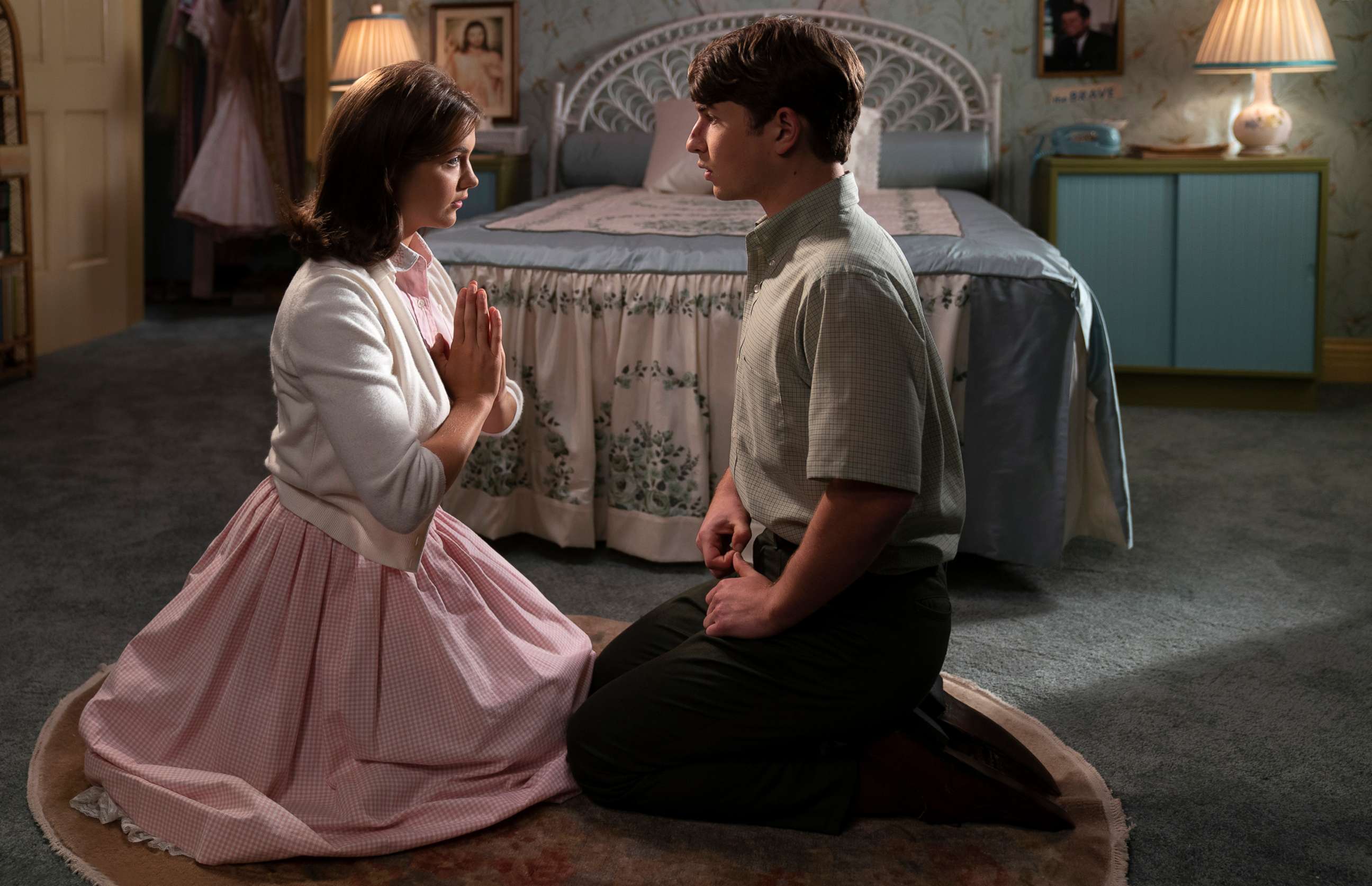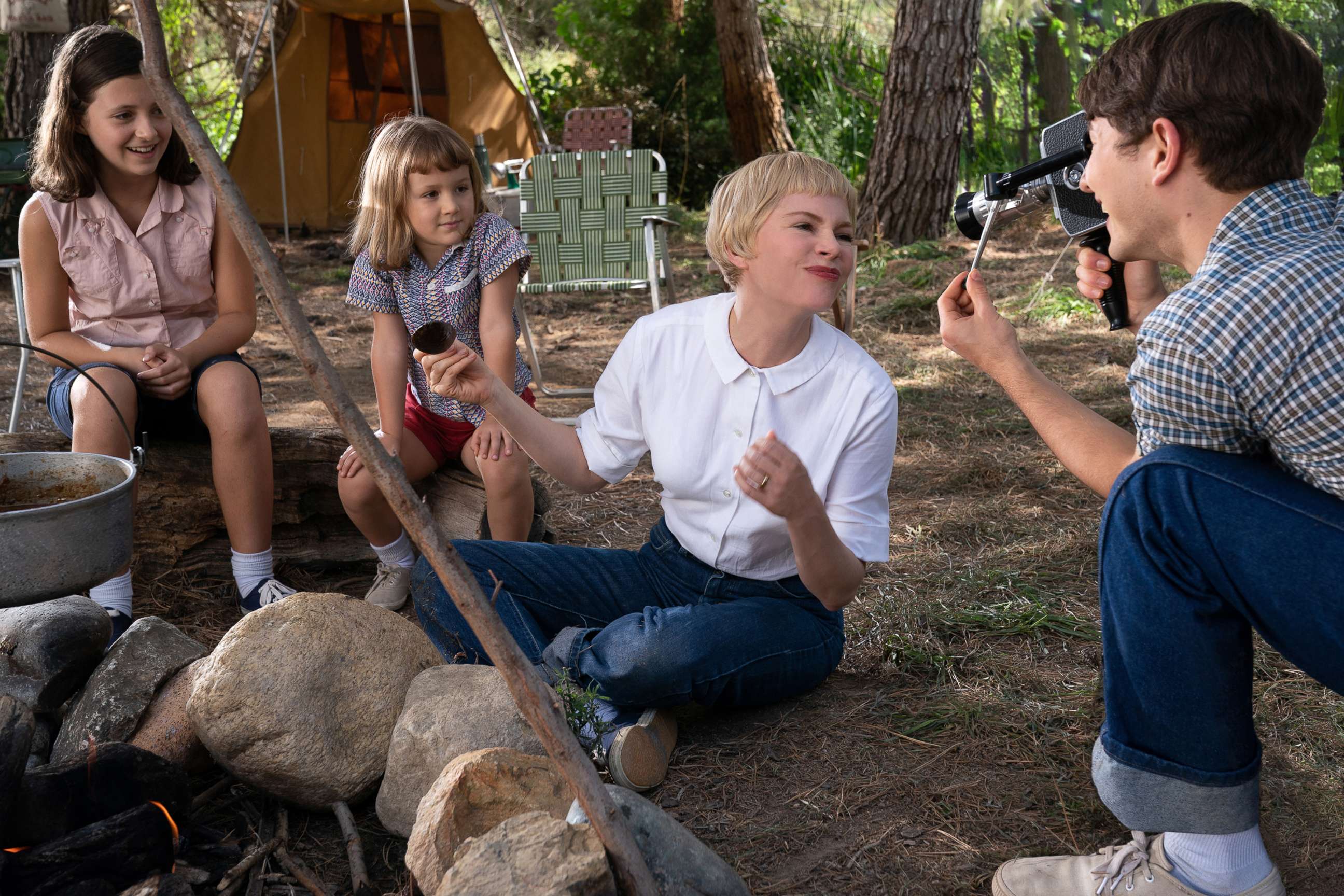Review 'The Fabelmans': Michelle Williams delivers a career-best performance
Bring out the Oscars for "The Fabelmans," a personal best from Steven Spielberg.

Bring out the Oscars for "The Fabelmans," a personal best from Steven Spielberg in no small part because it's a family picture about Spielberg's own family. Sentimental? Sure. Sappy? Never. No movie this year cuts a clearer path to the heart and the power of imagination.
Whatever Spielberg and his reliably brilliant co-writer Tony Kushner call movie-crazy teen Sammy Fabelman (Gabriel LaBelle) and his parents Mitzi (Michelle Williams) and Burt (Paul Dano), it's the late Leah and Arnold Spielberg who inspired this love letter from their son.
You can only see "The Fabelmans" in theaters, which is appropriate since movie houses were where Spielberg, 75, and the pioneer of modern blockbusters from "Jaws" and "Close Encounters" to franchises for Indiana Jones and Jurassic Park, received his education.

Spielberg begins "The Fabelmans" in 1952 on a cold New Jersey night when Sammy's parents take their frightened six-year-old son (Mateo Zoryon Francis-DeFord) to see his first movie -- the cornball Oscar-winning circus epic, "The Greatest Show on Earth."
Sammy doesn't want to go in. "You told me the people are gigantic," he quivers.
Inside, Sammy is stunned by the film's train crash, which he tries to reproduce with a toy train and a movie camera, projecting images on the palm of his hand. This is Sammy's passion made flesh. Says Mitzi, "It's so he can control his fear."
We don't see Spielberg as the legend who grew up to be the most famous showman and film artist since Walt Disney. But the child is surely father to the man. Shooting sci-fi, westerns and war dramas with his Boy Scout friends -- his three sisters in supporting roles -- Sammy/Steven would show his primitive handicraft at a local theater his father had rented.
That's where Sammy learned how his films could affect audiences, how he could manipulate their responses through camera placement and editing, nicking his fingers while splicing strips of film together in ways that would heighten laughs, tears and thrills.
Sammy became so film obsessed that he would see his real life as scenes, imagining himself moving his camera around his family even in moments of crisis that he should be sharing instead of observing from a distance.
One such moment comes when Sammy notices his mother, unaware she's in the background of a shot in an embrace with Benny (a terrific Seth Rogen), his dad's coworker and best friend. It's significant that Sammy doesn't see the betrayal firsthand but through a camera lens.
Enter Judd Hirsch, who is barely on screen for 10 minutes as a Jewish hurricane named Uncle Boris. But his comic and dramatic tour de force is magnificent in every detail. "Family, art -- it will tear you in two and leave you lonely," says Boris, who sees a fellow artist in Sammy.
He's right. When Burt's job as a computer engineer leads his family from New Jersey to Arizona and finally to Northern California, where the bullied Sammy faces sadly topical antisemitism at school from what he calls "giant Sequoia people," daddy resentment escalates.

Dano excels as the methodical Burt, whose eyes light up with love for his wife and son, but who stays blind to Mitzi's need for a partner not an audience and oblivious that Sammy requires a father who can understand the wounds he inflicts when he calls filmmaking a "hobby."
Spielberg has taken flak for casting non-Jewish actors as his on-screen mother and father, but argues that Williams and Dano look so much like his parents that he couldn't resist.
Newcomer LaBelle is a star in the making, playing Spielberg as a young artist racked by insecurity and hormones. Sammy's awkward advances to a flirty Christian coed (a wicked good Chloe East) who wants to infuse Jesus into him are hilariously harrowing.
One of Sammy's sisters accuses him of giving all the juicy parts in his home movies to guys. Spielberg won't feel that sting this time. It's the incandescent Williams who provides the film's emotional center in a captivating, career-best performance. She's electrifying.
Like her son, Mitzi is an artist, a gifted pianist who sacrificed career for family. Williams lets us see the sadness seeping through the performative effervescence Mitzi puts on to shield her family from her growing depression. Though Spielberg has previously handled the hurt of divorce, notably in "E.T.," the pain cuts deeper in a film so close to his real life.
"The Fabelmans" ends with Sammy's intro to Hollywood in a surprise too fun to spoil except you'll want to stand up and cheer. All the elements converge to make magic, including an award-caliber score from John Williams who, at 90, just divulged he's quitting film composing.
If so, he's going out on top. The Academy tends to undervalue the wonder in Spielberg's films, preferring the weightier "Schindler's List" and "Saving Private Ryan." Yet "The Fabelmans" brings us closer than ever to Spielberg as the vulnerable man behind the shiny curtain.
For that reason, "The Fabelmans" is more than just the best movie of 2022, it's a humanist tribute to the movie love we share with Spielberg and our own friends and family. You leave this gem with the intoxicating impression that you're in on the birth of an enduring classic.
As Mitzi says, movies are like dreams that you'll never forget." You won't forget this one.




